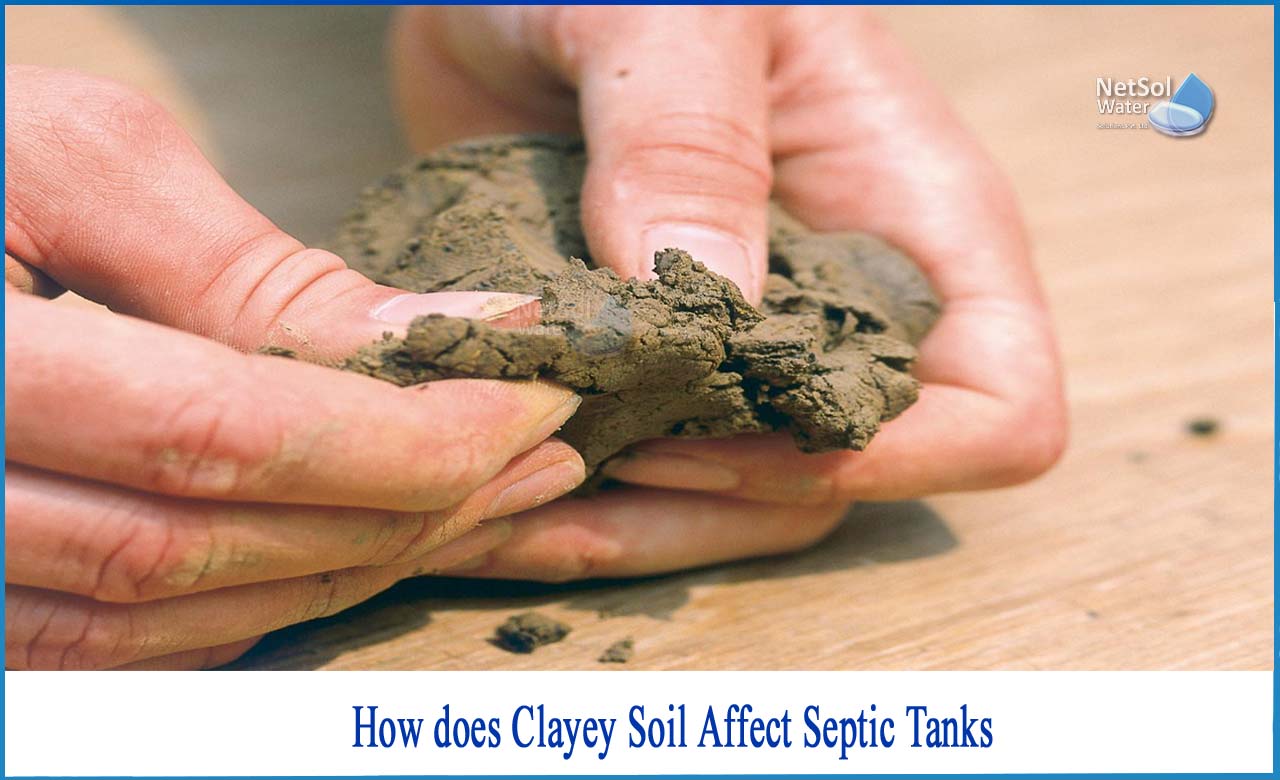How does clayey soil affect Septic tanks?
Your septic system, no matter how good it is, relies on the right soil type to complete the process of purifying your home's wastewater. The type of soil in the drain field region will impact how well the effluent is filtered and whether the water returned to the water cycle is suitable. This is why, when installing a septic system, it's critical to understand the soil composition.
Clay Mineralogy
Clay mineralogy is concerned with the amount of clay in the soil, which has an impact on the soil's percolation rate. Clays are divided into two categories: (2:1) and (1:1).
A (2:1) clay expands slightly when wet, whereas a (1:1) clay only expands slightly when wet. Clays with a (2:1) mineralogy (for example, montmorillonite) shrinks when dry and swells when wet. The porosity of the soil is reduced as the particles expand into the structural spaces as the soil swells. This means that the soil's hydraulic conductivity will be lowered, lowering the pace at which water percolates. As a result, soils with a (2:1) clay mineralogy are unsuitable for the installation of traditional septic systems.
Clay soils having a (1:1) mineralogy (for example, kaolinite) does not shrink or swell excessively when they absorb and release water. As a result, they do not impede water flow as much as their (2:1) counterpart. They can help with septic system installation.
The waste water exits the tank via the outflow line and is directed to one of the following locations:
1: A soak away system, often known as a drainage field
This is often a system of slotted or perforated pipes that provides some waste water treatment by allowing it to flow safely through the particles of the sub soils. The waste water can travel into the ground without polluting the environment (assuming of course that the soakaway system or drainage field is working as it should be). Your septic tank may occasionally discharge directly into a soakaway pit, which functions in the same way as slotted or perforated pipes.
2: A sealed pipe that connects to a nearby river or ditch
If your septic tank is connected to a soakaway system, the issue is that it will only work in specific types of soil. The long and short of it is that waste water cannot get through if the gaps between the particles are too small (or there are none at all). The biggest culprit is clay soil, which prevents waste water from moving through and being properly treated. This can result in major soakaway issues.
What options do you have if your septic tank is in clayey soil?
A soakaway system or drainage field is unlikely to work unless you have another area inside your property's boundary that does not contain clay soil. A percolation test can be used to assess the type of soil and how porous it is. If you're not sure, this is an excellent place to start because it will tell you whether any section of your property's ground is appropriate and, if so, what size and type of soakaway system you'll need.
If a percolation test reveals that your property's soil isn't suitable for a soakaway system, your septic tank can be replaced with a sewage treatment plant.
A sewage treatment plant creates higher-quality waste water, giving you additional alternatives for where the waste water can go once it leaves the plant. You may, for example, dump the waste water directly into a nearby watercourse or create a deep ring soakaway chamber or a borehole soakaway.
Netsol Water is Greater Noida-based leading water & wastewater treatment plant manufacturer. We are industry's most demanding company based on client review and work quality. We are known as best commercial RO plant manufacturers, industrial RO plant manufacturer, sewage treatment plant manufacturer, Water Softener Plant Manufacturers and effluent treatment plant manufacturers. Apart from this 24x7 customer support is our USP. Call on +91-9650608473, or write us at enquiry@netsolwater.com for any support, inquiry or product-purchase related query.



